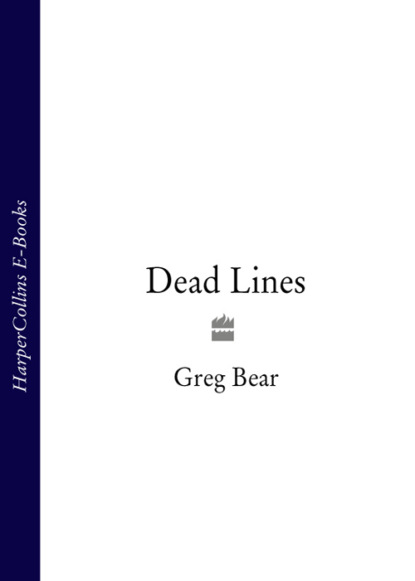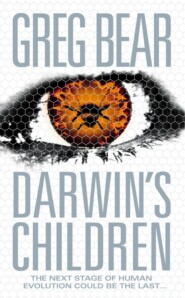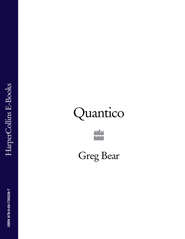По всем вопросам обращайтесь на: info@litportal.ru
(©) 2003-2024.
✖
Dead Lines
Настройки чтения
Размер шрифта
Высота строк
Поля
CHAPTER SEVEN (#ulink_73071786-0164-53ed-b843-a8acf35ef8d4)
The house was quiet and still. Outside, not a breath of air moved. A hallway beyond the alcove led past the living room, a bathroom, and the kitchen, to three rooms at the back.
He switched on the lights in the alcove and the hall and stepped around two neatly taped boxes Magic-markered with names and dates: Unknown Worlds 1940-43, Startling Mystery 1950-56. Hand-made pine shelves filled with paperback mysteries and science fiction covered the wall behind the door, arched over the door, around the corner, and into the living room, where more shelves framed the wide front window. Beneath window, records and old laser discs occupied a single shelf. He could make out still more shelves marching back into the shadows of a dining room, and stacked boxes where a table might have been.
In the living room, a single threadbare couch faced a scarred coffee table and the wide window. The coffee table, seen from above, had the outline of a plumped square, like the tube of an old black-and-white television set. In the fifties, those conjoined curves had been the shape of the future. Peter thought about Indian-chief test patterns, the Monsanto House of the Future at Disneyland, and how such curvilinear dreams had become part of the deep and forgotten past.
Their past.
Phil liked old black and white movies best. His taste in music was even more conservative than Peter’s: Bach and Haydn and Mozart, no rock, just big bands and fifties jazz up to early Coltrane. No Monk, even.
For some reason, it was taking time to get used to the idea that he had the house to himself. He kept thinking Phil would show up and grin and apologize, and then show him around, pulling books from shelves, removing their plastic bags to fondle his many little treasures.
Materialism, with a difference. Give me ideas, stories, music. Forget booze and diamonds, forget women. Pages filled with printed words and grooves in vinyl are a guy’s best friend. So Phil had once told him.
Peter found the kitchen. He filled a plastic glass with water from the tap. The sideboard was neatly piled with clean dishes. No cats or dogs, that was a blessing. Phil had never been enthusiastic about pets. Most of the cupboards in the kitchen were stuffed with old pulp magazines, G-8 and His Battle Aces, The Shadow, thick compound issues of Amazing Stories. One small corner shelf was reserved for cereal boxes and three more plastic glasses. The refrigerator held a six-pack of cheap beer, vanilla pudding cups, yogurt, clam chowder in plastic pouches. White foods.
Phil loved mashed potatoes.
Peter searched for coffee or tea. He needed something warm. Finally, he found a jar of instant coffee and a mug, right next to each other on the window sill over the sink. He put on a saucepan of water and set it to boil. Then he pulled up an old-fashioned step stool and sat with a whuff, wiping the long drive from his eyes with a damp paper towel. He did not want to sleep in the house, but there wasn’t enough money left for a motel. The couch did not look inviting. Peter could not just sleep anywhere these days. His muscles knotted if he lay down wrong. Finally, cup in hand, he turned on all the overhead lights in the kitchen and hall and the back bedrooms, inspecting each one until he came to Phil’s. More shelves, mostly new and empty, as if waiting to be filled. It was not a mess; it was actually pretty neat. Spartan. Someone had made up the queen-sized bed. Phil never made his bed.
Peter gritted his teeth. Lydia did not say where they had found Phil. The room did not smell. Still, he decided against sleeping in here. He took blankets from the hall closet and reluctantly settled on the couch. The window looked slantwise across the Bay at San Francisco, framed by two willow trees farther down the road. It was a beautiful view.
‘Jesus Christ, Phil,’ Peter said. ‘If you come back, I’ll punch you. I swear to God I’ll punch you right in the face. You should have told me you were sick.’
He was so tired. Against all his intellectual rigors, all his best intentions, he was still hoping to find Phil somewhere in the house. Hoping to grab one last minute together. ‘Where are you, buddy?’
He finished the cold coffee. Caffeine had little effect on him, but he doubted he would be getting much sleep tonight. ‘Come on, Phil,’ he cajoled, his voice like a small bird in the big living room. ‘One more time. Show up and give me a heart attack. Don’t ditch me.’
Peter leaned back and pulled up a small wool blanket. He kept rolling around on the old cushions, pushing his legs out as his knees felt antsy. Sleep came, but it was uneven. Finally, awake again and bladder full, he got up, stumbled around the boxes, and walked down the long hall. Never afraid of the dark. Never have been. Empty dark. He touched his way along the wall to the bathroom door and turned right.
A small plug-in nightlight illuminated a claw-foot tub, a round-mouthed porcelain toilet, and a standalone corner sink that must have dated from the teens or twenties. He lifted the toilet lid, unzipped his pants, and peed. Sighed at the relief from the sharp incentive nag. Not as bad as some his age, but still. Jiggled the stream around with childish intent, roiling the water. The little things we do when facing the big things, the imponderables. Peter softly sang a Doors song, ‘This is … the end … beautiful friend.’
His stream finally faltered and he shook loose a few drops, harder to get the last dribble out, a small indignity, meaningless in the face of that awesome and final one. ‘My only friend … the end.’
Something passed the open door, black against a lesser dark. Peter’s last squirt splashed on the floor. Half asleep, he stared in dismay at the puddle, zipped quickly, then bent to dab it up with a folded piece of toilet paper.
What?
Glancing left, he lowered the lid. His fingers slipped and the lid fell with a loud clatter on the ceramic bowl. Crap. Tell the world.
He poked his head through the doorway and looked up and down the hall. His eyes were playing tricks. He wished Lydia, somebody, anybody, would pop out and go, ‘Boo!’ just to show him how ridiculous he looked and sounded. How much he was betraying his vows to be skeptical.
He might be doing it again, deceiving himself, hoping beyond hope, beyond the material world, and if it kept on this way, sliding into this painful, hopeful retreat from the rational, he knew where it could all lead: straight into another case of Wild Turkey.
Trying to find the one who did it. Asking for Daniella. One last conversation with my daughter, oh my God.
Something moved again in the hall, making not so much a distinct sound as a change in the volume of air. Now Peter was sure. Someone had come into the house while he was sleeping – not Phil of course; a burglar. He reached into his pants pocket, feeling for the knife he sometimes kept there, and did not find it. It must have slipped out in the car or on the couch.
He pushed open the bathroom door with a, this time, deliberate bang and stepped into the hall, looking both ways. Dark left, dark right. ‘Whoever you are, get the hell out,’ he called, hands clenched.
Peter had no tolerance for burglars. He had been robbed often enough – the house four times, his car three times. People who stole deserved no mercy as far as he was concerned.
He found an antique button switch and pushed it. The hall light came on. Empty. The door at the end of the hall, leading into Phil’s bedroom, was open just a crack. He stood for a moment, listening.
Someone crying. The sound could have come from outside, from another house. But there were no houses close enough, not here at the end of Hidden Dreams Drive. Peter could feel heat rising again behind his eyes, steamy. Tropical. Such a weird sensation.
He realized he was making little hiccupping gulps as he finished his walk toward the end of the hall, Phil’s bedroom. The door’s closing had been blocked by wire hangers hooked over the top. He was astonished by how clearly he saw everything in the light of the hall fixture: wallpaper pastel flowers in diamond patterns, dark-stained baseboards, antique oak floor, worn oriental-design runner rucked up and curling on one side, boxes on the left stacked almost to the ceiling, WEIRD TALES 1943-48, the bedroom door and the hangers again, the darkness beyond the crack.
It sounded like a woman crying, soft, silky sobs, voice like dusty honey. Not Phil, then, of course, and probably not a burglar. A lost little girl, maybe. Some out-of-it doper marching around late at night. Peter forced his breath to slow. Maybe it was someone Phil knew, a lover come back to pick up her toothbrush, her underwear, her jewelry, as unlikely as that might be – Phil had kept so much to himself.
Peter assumed a fencer’s position in the hall, En garde. ‘I’m out here, and I won’t hurt you,’ he said, hand outstretched. ‘Don’t be afraid. It’s okay.’ He knew, could feel it as a tangible fact, that the bedroom was empty, but he could still hear the sobbing through the door.
Slender lines of darkness gathered in the periphery of his vision like smeared ink. As he tried to focus, they blended into corner shadows like wisps of spider web. Still, outside his direct gaze, the smudged lines flashed toward the bedroom door, wriggling like dark, blurry eels anxious to get in.
I’m having a stroke, just like Phil.
But he did not feel ill. Physically he was fine; it was the house, the bedroom, that was not fine. It was the bedroom that was crying.
Peter was not a coward. He knew that about himself. He could feel fear and still act, but what he felt now was not fear; it was an unwillingness to learn, and that was very different. Some things that you discover – infidelity, the death of loved ones – you cannot turn back from. What you suddenly know changes you, chops you up into little pieces.
He did not want to learn what was in the bedroom.
Still, he poked the door open with a stiff finger. He leaned slowly into the bedroom and fumbled to push the button switch.
The ceiling fixture slowly glowed to sterile yellow brightness. Shadows fled across the bedroom like little cyclones of soot. Peter grabbed the door jamb.
A woman stood at the foot of Phil’s bed. She had buried her face in grey hands, but Peter could tell who she was by the dark comma of bobbed hair and the honey-silk quality of her weeping. ‘My God,’ he said, and his shoulders slumped. He let out his breath and started to smile. ‘Lydia. You scared me.’
The woman’s hands dropped. She turned, head cocked, listening; slowly turned and listened some more, as if to far-off and unpleasant music.
All of a sudden, through his relief, Peter’s tongue moved involuntarily, and he bit into it. His head exploded in pain. Eyes watering, gasping, he felt vulnerable and very, very foolish. Through his tears, he saw that the woman’s face was like a flat sheet of mother-of-pearl. Her eyes opened to quizzical hollows. Less than solid, she resembled a paper doll frayed by careless snipping. Peter could actually see her edges ripple. Trying to back out, he thumped against the door, closing it, and for an instant felt something tug at his head, his throbbing tongue, his nerves.
Her blank and empty eyes vibrated. They seemed to point not quite in his direction, but through and beyond him. The image filled out like a balloon, assuming a counterfeit and temporary solidity.
Not Lydia. But it looks like her.
The image moved its lips. As if pushing through gelatin, the sound arrived late at his ears. ‘Phil, how could you do this, how could you just die?’ came the high-pitched silken wail, only a little louder than the buzzing of a fly.
The eel shadows swooped through the door and into the bedroom like descending hawks. He could feel them brush his shoulders like the tips of cold, damp fingers. The figure jerked in a horrible simulation of fear, trying to escape, dodging faster than flesh, like a bad film edit. But escape was impossible.
Peter’s mouth went stone dry. He wanted to look away, block his vision with a hand. Instincts old and deep instructed him that he was about to bear witness to something private, a sight no living human should ever have to see; but he could not stop himself.
He stared. Pity held him. And curiosity.
The eel shadows swarmed and lanced and worried the image, snatching away scalloped bites and crumbling pieces. It lifted its hands in weak defense, shuddering with an astonishing, dry simulacrum of pain. Whatever it was, its time had come. As the likeness of Phil’s ex-wife diminished and deflated, its wailing turned tinny and desperate. It unraveled drastically, peeling and dissolving in shreds like a tissue-paper cutout dipped in a bowl of water. In a few seconds, the last of its murky outline disintegrated and fell away. Sated, the shadows fled, draining like water around his feet. The room seemed to shiver off the last of them, leaving just the bed, neatly made and undisturbed, and the threadbare carpet and empty shelves.
The image, the delusion, the reflection or copy of Lydia – whatever it might have been – was gone. Peter leaned his shoulder against the door jamb. He could not move. For the moment, he could not even turn his head. Blood pounded in his ears. His calf cramped and he gritted his teeth. Even in his worse days of besotted grief, he had never seen anything remotely like this.









